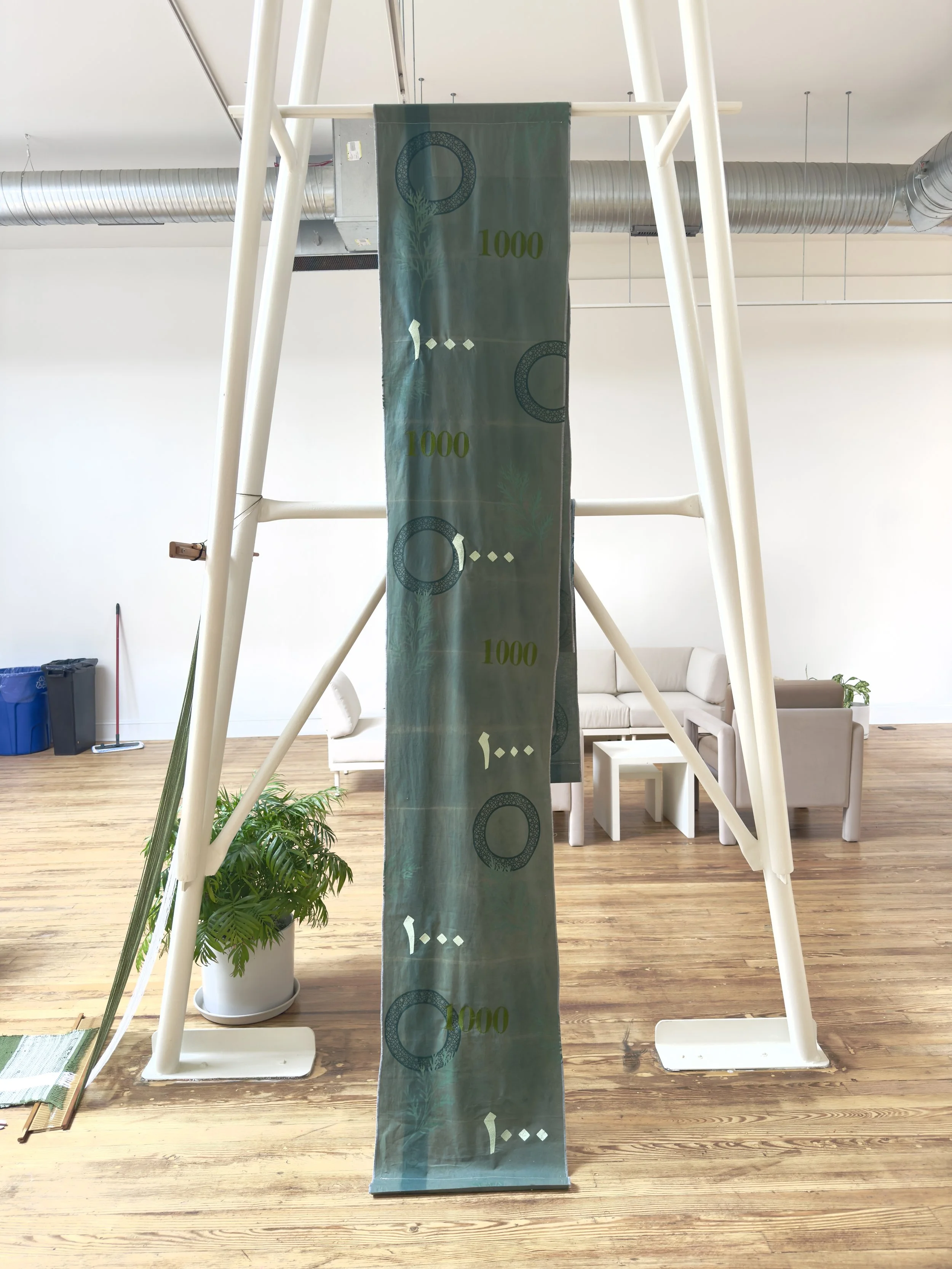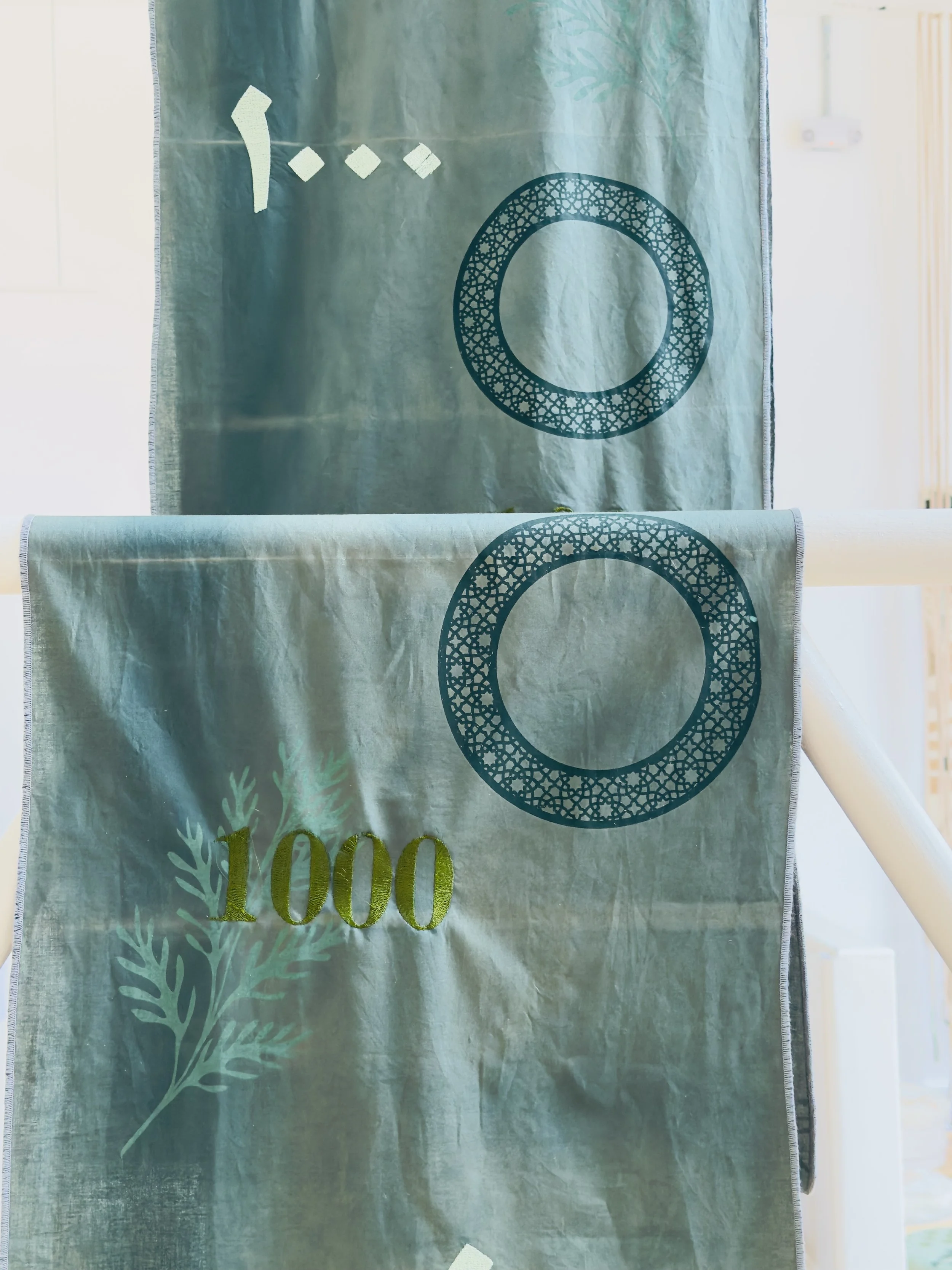BUILDING STEAM WITH A GRAIN OF WHEAT
-
1000 Sudan 96 × 18 in
Bleach, embroidery floss, fabric paint, woven synthetic fibers, bank notes
-
In this series, $100,000 notes, $20,000 notes, $1,000 notes, $10 notes of legitimate money from Lebanon, Sudan, and Egypt are woven into larger assemblage tapestries. What happens when money, the driver of so much, loses value? When $100,000 becomes worth $1 in a global market? What, ultimately, do we value and invest in?
This series of tapestries explores questions of value within global power structures that have been shaped by exploitation, forced enslavement, and colonial and imperial violence as a means to obtain power. Purchasing Power Parity (PPP), an economic theory and method used to compare the economic purchasing power of currencies, is also a theory often inadequately aligned in the real world, with deviations in exchange rates. What’s more, like history and context reported by people in positions of power and privilege, inaccurate information and comparisons PPP purports are steeped in power structures.
The tapestries, inspired by the intricate designs on the money, have been hand woven, naturally and resist-dyed, embroidered, printed and painted with handmade dyes. through the deliberate choice of slow, historic artistic processes of weaving, natural and resist dye work, embroidery, and sewing – processes which have been labeled as craft as a deliberate means to devalue labor – the work aims to reinstate and reassert its inherent value and explore questions of value.
-
Bread holds significance in economic terms. In aiding understanding of exchange rates and drops in value in currency, a common marker of value is by showing how much money one piece of bread costs. For example, in 1920 one bread would cost one bill. In 2000, one bread would cost 10000 bills and in 2020 one bread would cost 100,000,000 bills. In Gaza, this has been frequently cited to help people understand current economic disenfranchisement. Exorbitant prices reflect the extreme scarcity of flour and fuel due to ongoing blockades.
Bread is also considered sacred and most households across the region will not throw bread in the garbage, opting instead to leave it in bags tied to fences for passersby who may be hungry.
Building Steam with a Grain of Wheat (1000 Sudan) 96 × 18 in Bleach, embroidery floss, fabric paint, woven synthetic fibers, bank notes 2025
Building Steam with a Grain of Wheat (1000 Sudan) 96 × 18 in Bleach, embroidery floss, fabric paint, woven synthetic fibers, bank notes 2025




